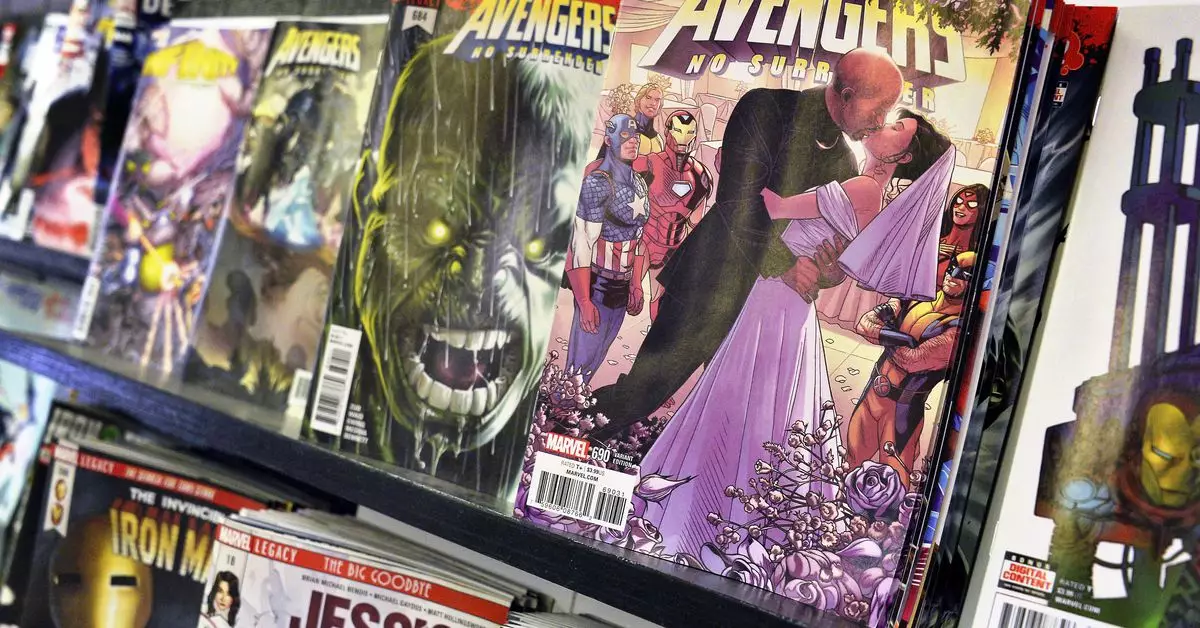In a groundbreaking decision that could reshape the landscape of superhero branding, the US Patent and Trademark Office (USPTO) has annulled certain trademark claims held by two of the most iconic comic book giants: Marvel and DC. The move comes after a legal challenge from a relatively unknown entity, Superbabies Limited, which produces a comic series centered on superhero infants. This case represents not only a significant legal development but also a potential turning point in how superhero narratives and trademarks can be traversed and exploited.
The story behind this trademark challenge is as compelling as the heroes it features. Superbabies Limited, spearheaded by creator S.J. Richold, decided to take on Marvel and DC’s stronghold over superhero-related trademarks after facing resistance from DC when attempting to promote “The Super Babies.” This challenge is indicative of the struggles faced by smaller creators in an industry dominated by titanic corporations. Richold’s determination to assert his rights is a vivid reminder of how the ethos of creativity can clash with legal ownership, often leading to contentious battles over intellectual property.
The Unraveling of Long-held Claims
As the deadline for response passed on July 24, 2024, and neither Marvel nor DC submitted a defense, the cancellation of multiple trademarks—including perhaps the most significant of all, “SUPER HERO,” established in 1967—took effect. The impulse behind these powerful companies’ apparent hesitation raises many questions regarding their approach to trademark management. Moreover, this may lead to a potential reevaluation of how trademarks are protected in the comic book industry, a domain closely intertwined with rapid cultural evolution and shifting public interests.
While they still jointly hold the “SUPER HEROES” trademark from 2018 and the “SUPER-VILLAIN” trademark from 1985, the revocation of these older claims might suggest vulnerabilities within the established systems that have long benefited corporate giants. As smaller entities gain traction and legal footholds, the comic industry could witness a democratization of superhero narratives, allowing diverse and innovative ideas to flourish.
The widely reported discussions involving legal professionals underscore a pivotal evolution within the superhero trademark debate. Adam Adler, an attorney involved in the Superbabies case, has undertaken the task of explaining the intricacies of how Marvel and DC came to mutually navigate their trademark space. Such insights can help demystify the complex legal frameworks that have allowed the two entities to thrive together, albeit under increasing scrutiny.
Additionally, the importance of this case cannot be understated. It may set a legal precedent that influences how upcoming creators, both large and small, approach intellectual property rights. As industry dynamics shift and new narratives outshine conventional superhero storylines, the importance of understanding the implications of trademarks will become ever more crucial.
Ultimately, this landmark decision signifies more than just a legal ruling; it is a beacon of hope for aspiring creators seeking to establish their own identities within a crowded marketplace. With the potential for expanded opportunities and a spate of new stories to emerge, the rich tapestry of superhero lore could soon incorporate an array of voices and visions long overshadowed by the traditional titans. Thus, as the dust settles on this pivotal moment in comic book history, the world eagerly awaits to see how the landscape of superhero narratives and branding will continue to evolve.

